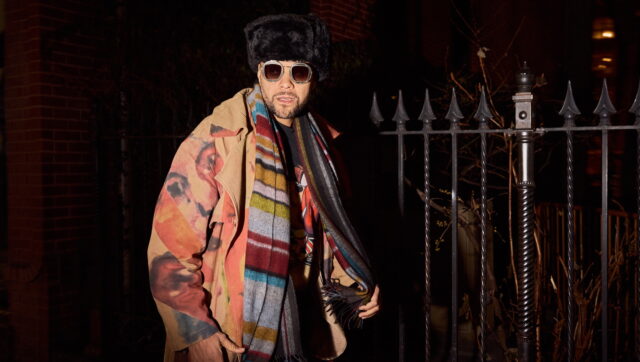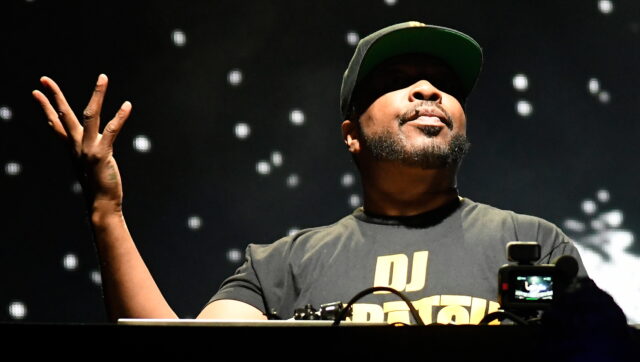‘Enter the Wu-Tang’ and Tribe’s ‘Midnight Marauders’ @ 30
On Nov. 9, 1993, two of hip-hop’s greatest groups released LPs that transformed the culture. In this reflective essay, the critic Marcus J. Moore writes about how this seismic shift impacted his 12-year-old self.
by Marcus J. Moore
In 1993, I didn’t know what jazz was. Some days I think I’m still learning, as the parameters surrounding it continue to shift and change. But 30 years ago, I was only 12, and I thought jazz was easy listening for old people. Which is why I had a complicated relationship with A Tribe Called Quest. Two years prior I’d bought — or, rather, my mom had bought for me — the group’s sophomore album, The Low End Theory, on cassette. I immediately liked the sounds I heard: the deep and textured drum loops, the incisive lyricism, the bass. It was all so fresh, but also quite foreign. It didn’t resemble anything I was into, sans De La Soul. Even so — what was all this about Tribe being a quintessential “jazz-rap” group? How was that possible?
So I was excited to hear the follow-up, 1993’s Midnight Marauders, though my ignorance toward the J word prevented me from marking off the calendar for it. By then, A Tribe Called Quest were a superstar trio who still felt accessible. Too often when rap acts succeed commercially, the work can grow distant from the audience it was intended for. They become some other thing — something mythical, something whisked out of concert venues through the back door with lots of security. Tribe never came off like that, even at their height. Sure, songs like “Check the Rhime” and “Scenario” were popular, but Q-Tip, Phife Dawg and Ali Shaheed Muhammad made music for us, their folks.
At the same time, Tribe were famously steeped in consciousness and culture and intellectual Black life. I anticipated those jazz invocations that drew me into The Low End Theory, even if I couldn’t pick them out by name as a tween. But Midnight Marauders didn’t feel like that, at least not exclusively, and even as it sampled the likes of Milt Jackson and Lee Morgan. Though it was crafted as a nighttime-themed album, with mid-to-slower tempos and a murkier vibe, it also felt warm, like those ’70s R&B LPs my elders used to play when it was time to clean up. In Midnight Marauders, I found my own soundtrack. It was a soothing walk through the park, and working up the nerve to say hey to the girl I liked in school. It was riding down the street in my grandfather’s yellow Cordoba. All the feelings, all at once. Nov. 9, 1993 was a good day.
But while I was unpacking the thick sonic layers of Midnight Marauders, my cousin came home with a different cassette, also released on that pivotal Tuesday in November ’93: Enter the Wu-Tang (36 Chambers) by the Staten Island collective Wu-Tang Clan. Where Tribe exuded a lighter, more buoyant energy, the Wu had a heavier sound incorporating kung-fu movie clips, Five-Percenter philosophy and well-worn soul samples, some with stunning, wailing vocals. Their look and ethos could intimidate those who hadn’t trekked across the same ground they had. But they spoke to real people — to cats on the grind just trying to get by, to those who don’t know where the next check or meal is coming from.
I was blown away. The music was so visceral; it tapped into a sense of hardship that many have endured but are ashamed to admit. The Wu also managed to represent my family: Their lead producer, the RZA, sampled the kind of nostalgic soul that my grandparents played — emotive and wistful, seemingly with all the vinyl crackles included. I’ve always been an old soul, and I think Tribe and the Wu had a lot to do with that. They recontextualized the forgotten records languishing in our basements, making them relevant to younger listeners. I felt inspired to go back and study all the samples, digging through the archives of obscure jazz and soul to fully understand the significance. That led me to “Mystic Brew” by Ronnie Foster, “We Gettin’ Down” by Weldon Irvine, and “Different Strokes” by Syl Johnson. Hip-hop production, in essence, is an argument that good music is good music, no matter when or where it comes from.
A lot’s been said over the years about Midnight Marauders and Enter the Wu-Tang releasing on the same day, so I won’t belabor that fact here. I just want to make clear that those two albums entering the culture simultaneously is a once-in-a-lifetime occurrence. And it wasn’t some competitive nonsense. Rather, rap music had wider variety back then, which allowed two divergent albums to thrive in the same marketplace, where they both contrasted and complemented one another before becoming certified classics — hard stop, no debate. Thirty years to the day, they still sound just as remarkable.
These albums also found the groups at opposing stages in their careers. Often considered their best, Midnight Marauders was the last great Tribe LP until the release of their final project, We Got It From Here… Thank You 4 Your Service, in 2016. Personally, I wasn’t entirely mad at 1996’s Beats, Rhymes and Life, but I can also acknowledge its unevenness, which felt more egregious given the group’s flawless run to that point. It sounded like they were isolated from each other, the resentment between Tip and Phife boiling over as they tried to keep it together.
The Wu’s dominance was just beginning. A year later, they’d start releasing a string of stellar solo albums from individual group members, and would soon become the most heralded collective in rap history. The Wu went through their own strife later in the decade, and as rap music became glossier and more decadent, the appetite for their brand of grit dissipated. Yet their organization has soldiered on as shorthand for rawness and integrity in hip-hop, and in recent years they’ve taken stock of their legacy with high-profile projects like the doc Wu-Tang Clan: Of Mics and Men and the dramatized series Wu-Tang: An American Saga, both of which premiered in 2019.
All these years later, I can’t say that I’m a Tribe or a Wu guy. I’m both; I admire them equally. Through Tribe and Midnight Marauders, I leaned into Black Classical Music, and came to understand its vitality and timeless impact. Through Enter the Wu-Tang, I learned to respect my grandparents’ cherished soul favorites, expanding the tapestry of sound I carry with me today. Kinda wild how just two albums did all that.



